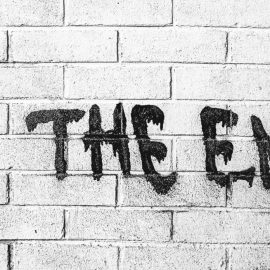

This article is an excerpt from the Shortform book guide to "Catch and Kill" by Ronan Farrow. Shortform has the world's best summaries and analyses of books you should be reading.
Like this article? Sign up for a free trial here .
Why did NBC News refuse to air Ronan Farrow’s story? What really happened between Ronan Farrow and NBC News?
Ronan Farrow, a former NBC News reporter, is known for his investigative reporting of the sexual assault crimes of Harvey Weinstein. He started investigating the story at NBC News, but the network refused to air it.
Read about what happened between Ronan Farrow and NBC News.
Ronan Farrow and NBC News: What Happened?
On Sunday, October 9, 2016, NBC News reporter Ronan Farrow and his producer, Rich McHugh, were working on a story about campus sexual assault for the Today show. It was a hard-hitting, well-researched piece, which made it all the more surprising when word came down from the leadership of the network that the piece would not air—in its place, Today would show a segment about Adderall addiction.
Why the sudden turnabout? Why would NBC News shelve Ronan Farrow’s piece? The answer had to do with another bombshell piece of news that had set off a media frenzy two days earlier, and NBC’s own complicity in it. The network’s reaction was a sign of things to come, as Farrow and McHugh would encounter the same pattern of stonewalling and hedging from their bosses as the duo worked to uncover one of the biggest scandals ever to rock the media and entertainment world.
“When You’re a Star, They Let You Do It”
On October 7, 2016, the Friday before Farrow and McHugh were told their campus sexual assault piece wouldn’t air, the Washington Post broke the story that Donald Trump, businessman, television star, and current Republican nominee for President of the United States, had been caught on video back in 2015 bragging about committing sexual assault. The audio captured Trump’s now-infamous boast about how he committed sexual offenses against women with impunity, “Grab[bing] them by the pussy” and claiming, “When you’re a star, they let you do it. You can do anything.” The story dominated headlines and even prompted calls from some Republican Party officials for Trump to step off the ticket.
Yet NBC’s coverage of the incident was strangely muted. Why? Because Trump, at the time of the video recording, had been an NBC employee, as the host of the popular reality television contest show The Apprentice. To make matters worse, Billy Bush, a current NBC host, was seen on the video laughing at and encouraging Trump’s comments, piping in with, “Yes! The Donald has scored!” To make matters worse still, Billy Bush was being promoted as a new Today host in the fall of 2016. Questions immediately arose about NBC’s prior knowledge of the Trump video: how long had they known about it and did they deliberately cover it up?
This was why NBC News spiked Ronan Farrow’s reporting. They didn’t want a story about sexual assault airing during the same news cycle in which one of its hosts was apologizing for cheering on sexual violence with another former network star and now-presidential candidate. As Farrow would discover, however, covering up stories of sexual misconduct was part of NBC’s standard operating procedure.
The Dark Side of Hollywood
In 2016, Farrow had been working on a series of news segments called The Dark Side of Hollywood, which were meant to air on the Today show. This was meant to be a wide-ranging exploration of Hollywood scandals, covering everything from racial bias in casting decisions to rigged campaigns for the Academy Awards. It wasn’t intended to be specifically about sexual harassment. But in January 2017, Noah Oppenheim, producer for Today and soon to be the president of NBCNews (and, thus, Farrow’s boss) suggested that Farrow talk to Rose McGowan about her allegation, believing that there might be a potential bombshell story behind her tweet (Oppenheim did not know that Harvey Weinstein was McGowan’s rapist at this time).
Farrow was intrigued by the idea of doing investigative reporting into the widely alleged show business practice of the “casting couch,” wherein aspiring female stars perform sexual favors for producers and directors, in exchange for being cast in films and TV shows. The McGowan accusation seemed like a good angle to approach this story, so Farrow dove in.
Chasing Leads
Farrow spoke to Rose McGowan and several other women. He also secured an audio from actress Gutierrez. Given all this evidence, Farrow and his producer, Rich McHugh, thought they had the smoking gun on Weinstein. Backed by the interviews they had already done with dozens of Weinstein associates and McGowan’s story, the facts of Weinstein’s behavior over the years were beyond any reasonable doubt. It was a thoroughly corroborated, well-researched, bombshell story about a public figure. It easily met the standards of both credibility and newsworthiness.
But, from the outset, Farrow encountered a strange reluctance on the part of his bosses to explore the story. Although they hadn’t known that Weinstein was McGowan’s rapist when they suggested Farrow investigate her accusatory tweet, they had a very different attitude now that they did know. They demanded evidence well above and beyond the standard that would have typically been applied for such a news story. They cast doubt on the credibility of Farrow’s sources, particularly McGowan. Even when he played the audio of Weinstein admitting to a pattern of sexual assault, Oppenheim hedged and split hairs, asking, “What does this really prove?”
The president of NBC News also repeatedly questioned the newsworthiness of the story, even going so far as to argue (absurdly) that Weinstein was an obscure figure who most Today viewers had barely heard of. Oppenheim even argued that Farrow had a personal vendetta against Weinstein because the latter had worked with Farrow’s estranged father (a ridiculous claim, as Weinstein had worked with nearly everyone in Hollywood). He claimed that Farrow was acting more as a crusader against sexual abuse than an objective reporter.
NBC News ordered Ronan Farrow and Rich McHugh to halt their investigation, with the justifications for the order always changing, from fact-checking concerns, to a need to run the story by the NBC legal team. Approvals that would normally have come from within NBC News were suddenly being kicked upstairs to NBC corporate and even to the network’s parent company, Comcast. This was all highly unusual, especially for a story with as much solid evidence as Farrow’s. Unbeknownst to Farrow, Phil Griffin, president of MSNBC, had already personally promised Weinstein that the story had been nixed.
Interference with Contract
Oppenheim also used dubious reasoning to question the legality of some of the reporting. He claimed that airing a news piece acknowledging the existence of the NDAs could put NBC in legal jeopardy. Farrow (who was also a lawyer) found this to be a weak argument: as a news organization, they aired stories from government and corporate whistleblowers all the time, sources who were almost certainly violating some sort of contract they had signed. By Oppenheim’s reasoning, most investigative journalism—most journalism, period—would be impossible.
As Farrow was assembling pieces of the story, he also knew that he needed Rose McGowan on video, describing her experiences and specifically naming Harvey Weinstein as her rapist. Although McGowan was reluctant to take the risk to go on camera, she agreed to book time to shoot the interview with Farrow in Los Angeles.
But before he set to fly out there, NBC ordered Farrow to put a “pause” on the story, while the news division sought approval from Comcast—NBC’s parent company. Weinstein had infiltrated the network through his contacts and was using his influence to get NBC News to kill Ronan Farrow’s story. The shoddy rationale they offered to Farrow was that shooting the McGowan interview would constitute tortious interference (encouraging McGowan to violate her NDA).
Again, this made no sense. If there was potential legal trouble for NBC with McGowan, the liability would be in airing her interview, not in merely shooting it. They could always decide to cut it before the package went to air. But NBC was insistent that the story come to a halt until these “issues” could be resolved.
From Farrow’s point of view, the situation was absurd: he was sitting on a major story and his own news network was handicapping his efforts to bring it to light. He and McHugh decided to go against the wishes of their bosses, continuing to schedule further interviews with Weinstein’s accusers. Farrow was committed to the story and was willing to go rogue to see it through.
NBC News Fires Ronan Farrow
NBC News was dismayed and angry at Ronan Farrow’s refusal to comply with the order to cease reporting. Little did Farrow know that members of Weinstein’s legal team had already been in touch with Susan Weiner, general counsel for NBCUniversal. Weiner had assured Weinstein’s team that the story was dead once and for all and that NBC News terminated Ronan Farrow’s contract and killed his story once and for all.
In September 2017, Farrow sat down for a meeting with Oppenheim, where his boss told him that there was no longer room in the budget for him. It was official: NBC News fired Ronan Farrow.
Even more distressingly, Weiner threatened that NBC would publicly disclose that Farrow’s contract had been terminated with the network. This, of course, would damage his credibility with past and future sources while he worked on the story for The New Yorker. Not only was NBC killing his story, they were trying to indirectly damage it at other news outlets as well. In their threats, NBC had taken a page directly out of the Harvey Weinstein playbook.

———End of Preview———
Like what you just read? Read the rest of the world's best book summary and analysis of Ronan Farrow's "Catch and Kill" at Shortform .
Here's what you'll find in our full Catch and Kill summary :
- How Ronan Farrow uncovered rampant sexual abuse and assault by Harvey Weinstein
- How NBC tried to intimidate Farrow into killing the Weinstein story
- How the media and legal systems let Weinstein's abuse continue for decades






